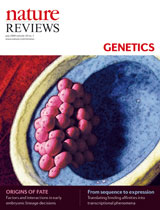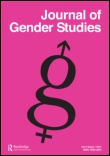
Human ecology is an interdisciplinary and transdisciplinary study of the relationship between humans and their natural, social, and built environments. The philosophy and study of human ecology has a diffuse history with advancements in ecology, geography, sociology, psychology, anthropology, zoology, epidemiology, public health, and home economics, among others.
A public health journal is a scientific journal devoted to the field of public health, including epidemiology, biostatistics, and health care. Public health journals, like most scientific journals, are peer-reviewed. Public health journals are commonly published by health organizations and societies, such as the Bulletin of the World Health Organization or the Journal of Epidemiology and Community Health. Many others are published by a handful of large publishing corporations that includes Elsevier, Wolters Kluwer, Wiley-Blackwell, Springer Science+Business Media, and Informa, each of which has many imprints. Many societies partner with such corporations to handle the work of producing their journals.

Structural violence is a form of violence wherein some social structure or social institution may harm people by preventing them from meeting their basic needs.
Theoretical psychology is concerned with theoretical and philosophical aspects of psychology. It is an interdisciplinary field with a wide scope of study.
The impact factor (IF) or journal impact factor (JIF) of an academic journal is a scientometric index calculated by Clarivate that reflects the yearly mean number of citations of articles published in the last two years in a given journal, as indexed by Clarivate's Web of Science.

Nature Reviews Genetics is a monthly review journal published by Nature Portfolio. It was established in 2000 and covers the full breadth of modern genetics. The editor-in-chief is Linda Koch. The journal publishes review and perspective articles written by experts in the field subject to peer review and copy editing to provide authoritative coverage of topics. Each issue also contains Research Highlight articles – short summaries written by the editors that describe recent research papers.

Nature Chemical Biology is a monthly peer-reviewed scientific journal published by Nature Portfolio. It was established in June 2005 by founding Chief Editor Terry L. Sheppard as part of Nature Publishing Group. Sheppard was the Chief Editor of the journal 2004–2022. The current editor-in-chief is Russell Johnson.

Social medicine is an interdisciplinary field that focuses on the profound interplay between socio-economic factors and individual health outcomes. Rooted in the challenges of the Industrial Revolution, it seeks to:
- Understand how specific social, economic, and environmental conditions directly impact health, disease, and the delivery of medical care.
- Promote conditions and interventions that address these determinants, aiming for a healthier and more equitable society.

Human Relations is a monthly peer-reviewed academic journal covering research on social relationships in work-related settings. The journal is published by SAGE Publications on behalf of the Tavistock Institute of Human Relations (London). The journal was established in 1947 by the Tavistock Institute and the Research Center for Group Dynamics at the Massachusetts Institute of Technology.
Biosocial Theory is a theory in behavioral and social science that describes personality disorders and mental illnesses and disabilities as biologically-determined personality traits reacting to environmental stimuli.

Nature Genetics is a peer-reviewed scientific journal published by Nature Portfolio. It was established in 1992. It covers research in genetics. The chief editor is Tiago Faial.
Human Biology is a peer reviewed scientific journal, currently published by Wayne State University Press. The journal was established in 1929 by Raymond Pearl and is the official publication of the American Association of Anthropological Genetics. The focus of the journal is human genetics, covering topics from human population genetics, evolutionary and genetic demography and quantitative genetics. It also covers ancient DNA studies, evolutionary biological anthropology, and research exploring biological diversity expressed in terms of adaptation. The journal also publishes interdisciplinary research linking biological and cultural diversity from evidence such sources as archaeology, ethnography and cultural anthropology studies, and more. As of February 14, 2020, the journal is on Volume 90, Issue 4. The journal's current editor is Ripan S. Malhi.

Gardner Murphy was an American psychologist who specialized in social and personality psychology and parapsychology. His career highlights include serving as president of the American Psychological Association and the British Society for Psychical Research.

The Journal of Gender Studies is a leading British peer-reviewed journal for interdisciplinary gender studies, published by Routledge. It has been published since 1991, and publishes articles relating to gender from a feminist perspective covering a wide range of disciplines. It aims to create a dialogue among the different academic fields that engage with ideas and theories of gender.

Biosocial criminology is an interdisciplinary field that aims to explain crime and antisocial behavior by exploring biocultural factors. While contemporary criminology has been dominated by sociological theories, biosocial criminology also recognizes the potential contributions of fields such as behavioral genetics, neuropsychology, and evolutionary psychology.

The correlates of crime explore the associations of specific non-criminal factors with specific crimes.
Melinda Mills, is a Canadian and Dutch demographer and sociologist. She is currently the Nuffield Professor of Sociology at Nuffield College, University of Oxford. Mills’ research spans a range of interdisciplinary topics at the intersection of demography, sociology, molecular genetics and statistics. Her substantive research specializes in fertility and human reproductive behaviour, assortative mating, labour market, life course and inequality.
The Journal of Biosocial Science is a bimonthly peer-reviewed scientific journal covering the intersection of biology and sociology. It was the continuation of The Eugenics Review, published by the Galton Institute from 1909 till 1968. It obtained its current name in 1969, with volume numbering re-starting at 1, and switched publishers to Cambridge University Press. The editor-in-chief is Dr Alejandra Núñez-de la Mora.
Research in Human Development is a quarterly peer-reviewed interdisciplinary scientific journal that publishes research on all aspects of human development. Its scope includes the perspectives of biology, psychology, and sociology, among other disciplines. It was established in 2004 and is published by Taylor & Francis. It is the official journal of the Society for the Study of Human Development. The editor-in-chief is Michael Cunningham. According to the Journal Citation Reports, the journal has a 2020 impact factor]] of 1.222.

Nature Machine Intelligence is a monthly peer-reviewed scientific journal published by Nature Portfolio covering machine learning and artificial intelligence. The editor-in-chief is Liesbeth Venema.










